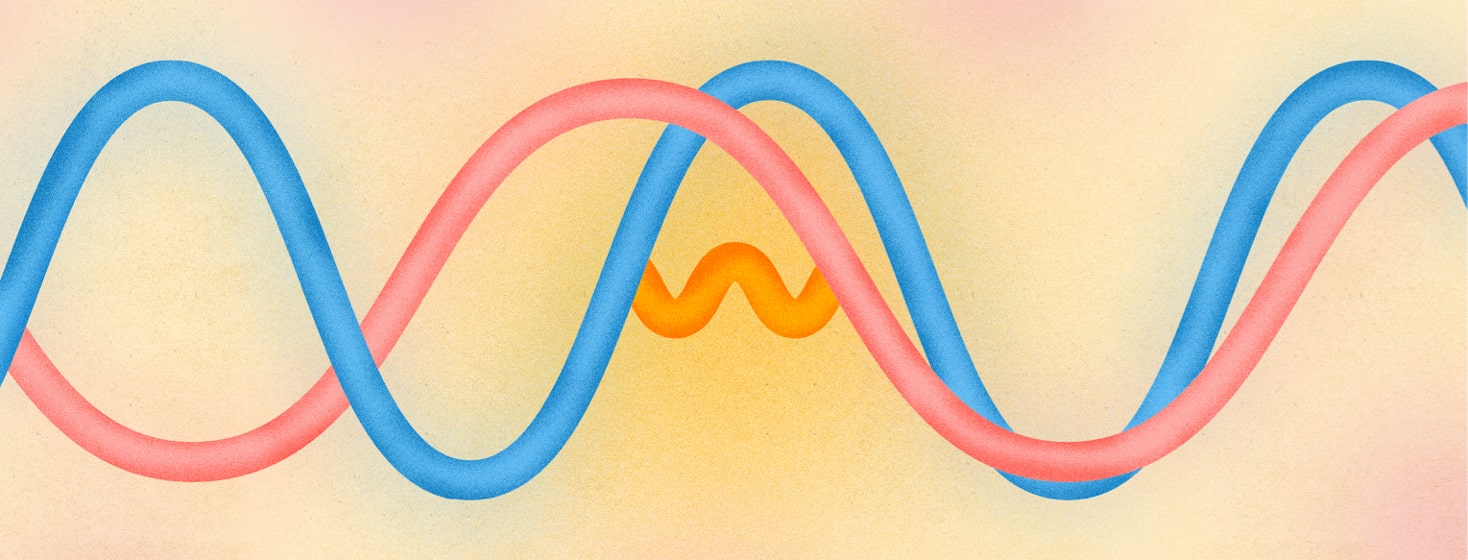Insomnia and Binaural Beats
Recently, I have been fielding questions from providers and patients alike about the treatment of insomnia with binaural beats. “Binaural beats” or “BBs” was a new term to me, so I did some research to learn more.
Is this just the latest disappointing fad in insomnia treatment? Or can it actually help?
What are binaural beats?
As someone whose eyes glaze over when I hear the terms “frequencies” and “pure tones,” it took me a while to understand what BBs are. I’ll simplify what I’ve learned for those of you who feel similarly.
When 2 different sound waves are simultaneously applied to our left and right ears (hence “binaural”), our brains recognize the frequency difference between the 2 sounds. We also perceive a virtual third wave with the frequency difference between the 2 sounds. For example, if a 200-Hz pure tone is supplied to the left ear and a 206-Hz pure tone is presented to the right ear, our brains will perceive the third sound with a 6-Hz frequency. This phenomenon is best experienced with headphones.1
An important point is that specific frequencies are linked to mood and behavior states. So some frequencies may make you feel more energized, while others may help you relax.1
Fortunately, you don’t have to fully understand the science behind BBs to understand the claims that people are making about them.
Binaural beats and sleep
BBs are not a new technology and have been used for stress reduction for several years. But recently they have been marketed as a cure for insomnia. Audio recordings on the internet promise to make you “fall asleep immediately” and get “the deepest healing sleep.” Some even come with warnings to not listen to BBs while driving.
But the research so far doesn’t back up those claims. A few studies have been conducted in the past few years looking specifically at BBs and sleep. Unfortunately, the number of people in the studies and the design of the studies limit what we can conclude about BBs for insomnia. The studies have been done mostly on younger (under 30 years old), healthy people without a history of sleep problems or mental health diagnoses.2-4
While these people reported benefits like falling asleep faster, getting deeper sleep, and feeling refreshed in the morning, they never had difficulty sleeping to begin with.2-4
The one study that included people with subclinical insomnia found that BBs did not significantly decrease the time it took people to fall asleep, how long they slept, or whether they woke up during the night. However, participants who listened to BBs did report more daytime alertness despite the lack of change in their sleep.5
Can binaural beats help insomnia?
In short, it doesn’t seem that BBs will resolve true insomnia. But even if BBs are not the magic cure that some are proposing, you might choose to add them to your insomnia toolbox.
BBs are often set to a frequency that is soothing to listeners. They also tend to be combined with soothing music and visuals. Therefore, BBs can help you relax and be a healthy part of your daily wind-down routine. Given the research, they may also lead you to feel more alert during the day even if your sleep hasn’t improved.
In summary, BBs are not a replacement for evidence-based treatments like cognitive behavioral therapy for insomnia (CBTI). But you could incorporate BBs along with other treatments without much risk or effort.
Have you heard of binaural beats? Have you tried them for your insomnia? Please share your experiences in the comments below.

Join the conversation